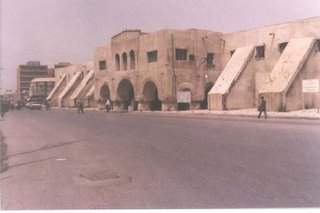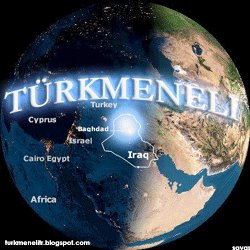Every time an election or a referendum takes place in Iraq, it almost invariably creates hope that the regime will gain legitimacy and that terrorism and the Sunni resistance will lose momentum. That hope, however, quickly fades. This time, too, in the wake of the election there has been a sudden, big increase in attacks directed at US troops, Shiites and state institutions.

Gündüz Aktan
Every time an election or a referendum takes place in Iraq, it almost invariably creates hope that the regime will gain legitimacy and that terrorism and the Sunni resistance will lose momentum. That hope, however, quickly fades. This time, too, in the wake of the election there has been a sudden, big increase in attacks directed at U.S. troops, Shiites and state institutions.
America is to withdraw some 20,000 troops from Iraq out of a force that currently totals 160,000, including reinforcements sent in for the elections. This development is not unexpected. However, according to a previous congressional decision, plans for the withdrawal of the remaining forces must be announced during the initial six months. Any such announcement at this juncture would lead to Iraq's unraveling.
America is planning to expand the 200,000-strong Iraqi army and police force to around 300,000 by the end of 2006 and gradually hand the task of ensuring law and order over to them; however, the Iraqi army is not equipped with heavy weapons and the military training program has not been completed. The main problem is that the army does not harbor any overriding concern to preserve Iraq's unity. The Kurds maintain the peshmerga as a force that is much more heavily armed. The Sunnis are not admitted into the army since they are Baathists. As a result, the army is Shiite dominated. This hardly qualifies as an “Iraqi” army.
One U.S. official predicts that if things continue the way they are, the Iraqi army will split into ethnic and sectarian groups, degenerating into a number of armed bands and into militia forces of various segments. In that case, the Shiite-Sunni clash that has been under way could grow into a full-fledged war.
Furthermore, election results show that people all voted for their respective ethnic and religious groups rather than acting as “Iraqis.” Naturally, one cannot expect the army to be any different from the political structure prevailing in the country. In other words, the army could hardly be expected to transcend the “narrow” considerations of the political parties.
America has been in contact with members of the Sunni resistance. Its aim is to drive a wedge between the Sunni resistance and the al-Qaeda-led Zarqawi faction. Indeed, the Sunnis are complaining about al-Qaeda's indiscriminate violence. Sunni resistance fighters aim to drive the U.S. forces out of Iraq and regain their former sovereignty to the extent that it would be possible. Al-Qaeda, on the other hand, has aims that are a lot more extreme. The belated American attempts to win over the Sunnis have not, until now, yielded any results other than bringing about a stronger-than-expected Sunni turnout in the elections. The American press now is adopting a stance that is more critical of the Shiites and Kurds, whose petty moves to shut the Sunnis out of a coalition government are nudging the country closer to disaster.
The Sunnis have another problem. The Sunnis, who governed Iraq for 60 years, used to be known as the country's second largest group, albeit by a narrow margin. Yet, the American press now relegates them to Iraq's third biggest group status. Yet the Sunnis believe themselves to be, in reality, the majority. The truth is that at this moment no one knows the true size of this group. By the way, we do not know the exact size of the Turkmen population in Iraq, either. A census had been contemplated for the autumn of 2004 to determine the size of each group. That would have been important for the soundness of the elections. The plan was later dropped on grounds that this could lead to Iraq's disintegration. However, in any case Iraq is now disintegrating and the lack of information about the true size of each group in Iraq is contributing to this process.
The gravity of the crisis in Kirkuk is increasing. Since the Kurds have helped America, the latter tolerated for quite a long time Kurdish efforts to change the demographic structure of the Tamim province. Under Saddam's rule an Arabification drive had been launched there. To counter the effects of that drive, Article 58 of the Law of Administration for the State of Iraq for the Transitional Period envisaged a particular procedure to be followed to ensure that the displaced Kurds would be returned to the province. The procedure was never quite upheld. However, the new Constitution states that a referendum is to be held in 2007 to determine whether the province should be attached to the Kurdish region or to Baghdad. By now the Kurds have forcefully driven out the Arabs and piled a Kurdish population of some 350,000 into Kirkuk. This unlawful fait accompli is the biggest factor that could lead to a declaration of independence on the part of the Kurds and cause Iraq's disintegration.
If, in the face of such a possibility, the Shiites and Sunnis joined hands to protect Iraq's territorial integrity, then that could change the course of the civil war. The fact that terrorist attacks have recently spilled into Kirkuk indicates that this is not a possibility to be taken lightly.

